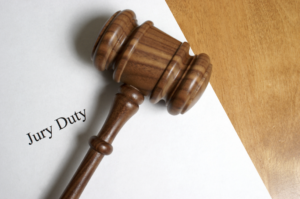
A duty of care, in legal terms, means an obligation to act with reasonable care to avoid conduct that poses a risk of harm to others. A person’s duty can be dictated by law, custom, or moral reasons. A breach of duty involves a person’s failure to follow their duty of care and, in turn create, a risk of harm to other people.
When filing a personal injury lawsuit, a person must show that the at-fault party had both a duty of care and a breach of their duty. These are two of the critical elements needed to prove negligence by another person.
You could be entitled to compensation if you were hurt in an accident caused by someone else’s breach of duty. A Monmouth County personal injury lawyer can help.
Defining Duty and Breach of Duty in a Personal Injury Claim

If you seek financial compensation in a personal injury case, you will most often need to prove that the other person’s negligence caused your injuries. Proving negligence requires the establishment of four essential items known as “elements.”
The elements of negligence are:
- Duty of Care
- Breach of Duty
- Causation
- Damages
Each element must be proven in order to establish negligence liability.
Duty of Care
To define breach of duty, we first must understand what duty means. We all have a duty to act responsibly and not put others at risk of injury. In certain situations, we also have a specific duty to behave in a certain way. This depends on the relationship between individuals under the circumstances.
For example, drivers have a duty to follow traffic laws and avoid causing accidents. A store owner owes a duty to customers to keep the shop free from hazards such as spills, holes in the ground, or loose wires.
A duty of care is also known as a “reasonable person standard.” This means that a person must not behave perfectly in every situation but must at least use the ordinary care and caution that a reasonable person would have.
Breach of Duty
Once the duty of care is proven and established, the question becomes whether the defendant breached their duty of care. To breach, they must have failed to act in the way a reasonable person would have under the same situation.
For example, a driver is expected to obey traffic signals. When they don’t, they’ve breached their duty of care. In a medical malpractice case, a doctor is compared to other doctors with similar training and experience. If the doctor failed to treat the patient in a way a reasonable doctor in their position would have, that could constitute a breach of duty.
In some cases, proving a breach of duty can be simple. A dog owner that lets their dog roam unleashed through a park breaches their duty of care to prevent dog bites, for example. In other cases, proving a breach of duty can be more complicated.
Evidence That Can Prove Breach of Duty
In every case, the at-fault party’s breach of duty must be supported by evidence. An experienced personal injury lawyer can examine all available evidence to demonstrate that a duty existed and the defendant breached their duty.
Some evidence that can be used to prove breach of duty might include:
- Testimony from witnesses to the accident
- Testimony from police officers responding to the accident
- Surveillance footage from traffic or storefront cameras
- Photographs from the accident scene
- Physical evidence from the accident scene
- Testimony from the accident victim
- Testimony from accident reconstruction experts
- Other expert witness testimony and reports
These and other types of evidence can be provided to insurance companies during the claims process and presented as evidence in a court trial. For these reasons, it is crucial to gather and locate all potential evidence for your claim as soon as you can.
Causation and Damages
The final two elements in a personal injury case are:
- Causation. This refers to a causal link between the defendant’s actions (or failure to act) and a plaintiff’s injuries. If the other party struck the victim directly with their vehicle, causation is easily proven. If there are other factors involved, causation can be a more complicated issue.
- Damages. To succeed, a personal injury claimant must show they were damaged in some way. This can be proven through evidence such as medical bills, therapy costs, lost wages, property repairs, or lost future earnings. In many cases, a plaintiff can also show they experienced pain and suffering or other intangible damages from an accident. This final element is typically simple to prove once the first three elements are proven. Calculating the correct amount of damages is best done with the help of a skilled lawyer, however.
In many cases, only one or two elements of negligence will be in dispute.
Our Monmouth County Personal Injury Lawyers Can Help
If you have been hurt in an accident, you may be able to collect financial compensation for your injuries. You don’t have to fight this battle alone. Our experienced lawyers can fight for you and help prove a breach of duty in your personal injury case. Contact an experienced attorney at Noonan & McMahon, LLC for a free case evaluation with an experienced Monmouth County personal injury attorney. Give us a call at (732) 303-7857.
